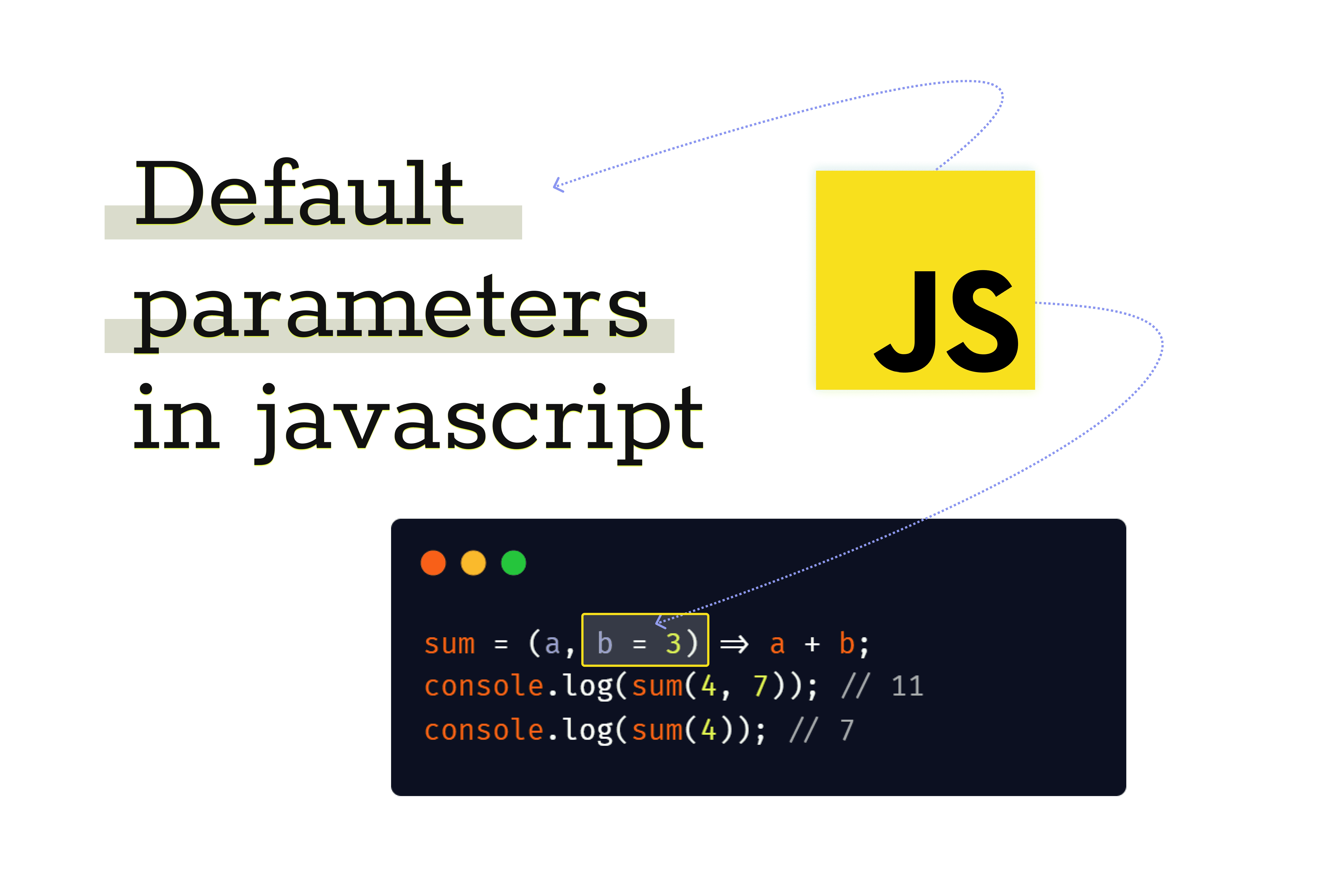
In this post we'll going to learn default parameters with 2 examples
The concept of default parameter a new feature introduced in the ES6 version of JavaScript.
🔗What is default parameters ?
Default parameters are basically parameters that a function can depend as a backup if parameters are not specifically declared or pass through to the function when we call
Syntax:-
jsfunction fnName(param1 = defaultValue1, ..., paramN = defaultValueN) { ... }
🔗Example 1:
Passing Parameter as Default Values
jssum = (a, b) => a + b;console.log(sum(4, 7)); // 11console.log(sum(4)); // NaN
In the above example, if no value is provided for b when sum is called, b's value would be undefined when evaluating a + b and sum would return NaN

To avoid this we can use default parameters in below example the default value of b is 3
jssum = (a, b = 3) => a + b;console.log(sum(4, 7)); // 11console.log(sum(4)); // 7

🔗Example 2 :
We can also pass function Value as default value
jsconst sum = () => 15;const calculate = (x, y = x * sum()) => {return x + y;};const result = calculate(10);console.log(result); // 160

Explanation :-
- 10 is passed to the calculate() function. ( x = 10 )
- x becomes 10, and y becomes 150 ( y = x sum() = 10 15 = 150 )
- The result will be 160 ( result = ( x + y = 10 + 150 ) = 160 )
🔗QUIZ time
What is the output of following code comment below 💬
jssum = (x = 3, y = 5) => {return x + y;};console.log(sum(2, 10));console.log(sum(5));console.log(sum());
Output comment below
js// option :// 12 , 10 , 8// 8 , 8 , 8// 8 , 10 , undefined// undefined 5 , undefined
